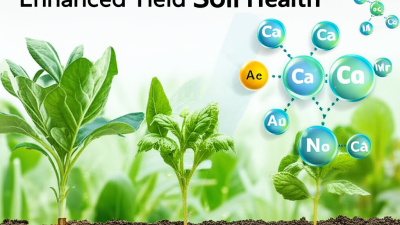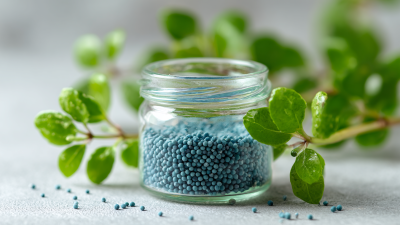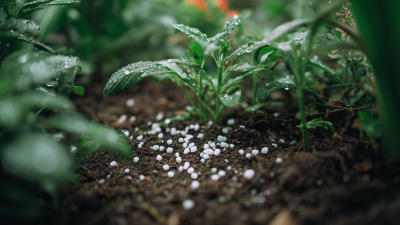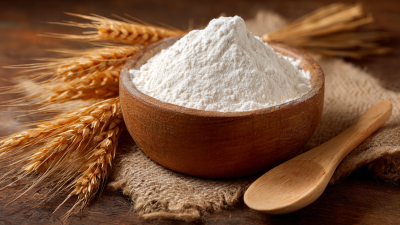In the realm of modern agriculture and gardening, the choice of fertilizers plays a critical role in ensuring optimal plant growth and yield. Among the various types, Water Soluble Liquid Fertilizers have gained significant traction due to their immediate nutrient availability and ease of application. According to a report by the International Fertilizer Industry Association (IFA), the global market for water-soluble fertilizers is projected to reach $13 billion by 2025, reflecting a growing recognition of their efficiency and effectiveness in enhancing crop productivity.
As noted by Dr. Jane Smith, a leading expert in agronomy and sustainable farming practices, "Water Soluble Liquid Fertilizers provide a unique solution for nutrient delivery, enabling plants to access essential elements rapidly and thereby supporting robust growth." This statement underscores the importance of water-soluble formulations in both commercial agriculture and home gardening, where the demand for nutrient-dense produce is ever-increasing. With this growth trend, understanding the top water-soluble liquid fertilizers available in 2025 becomes essential for gardeners and farmers alike who aim to achieve agricultural success and cultivate thriving ecosystems.
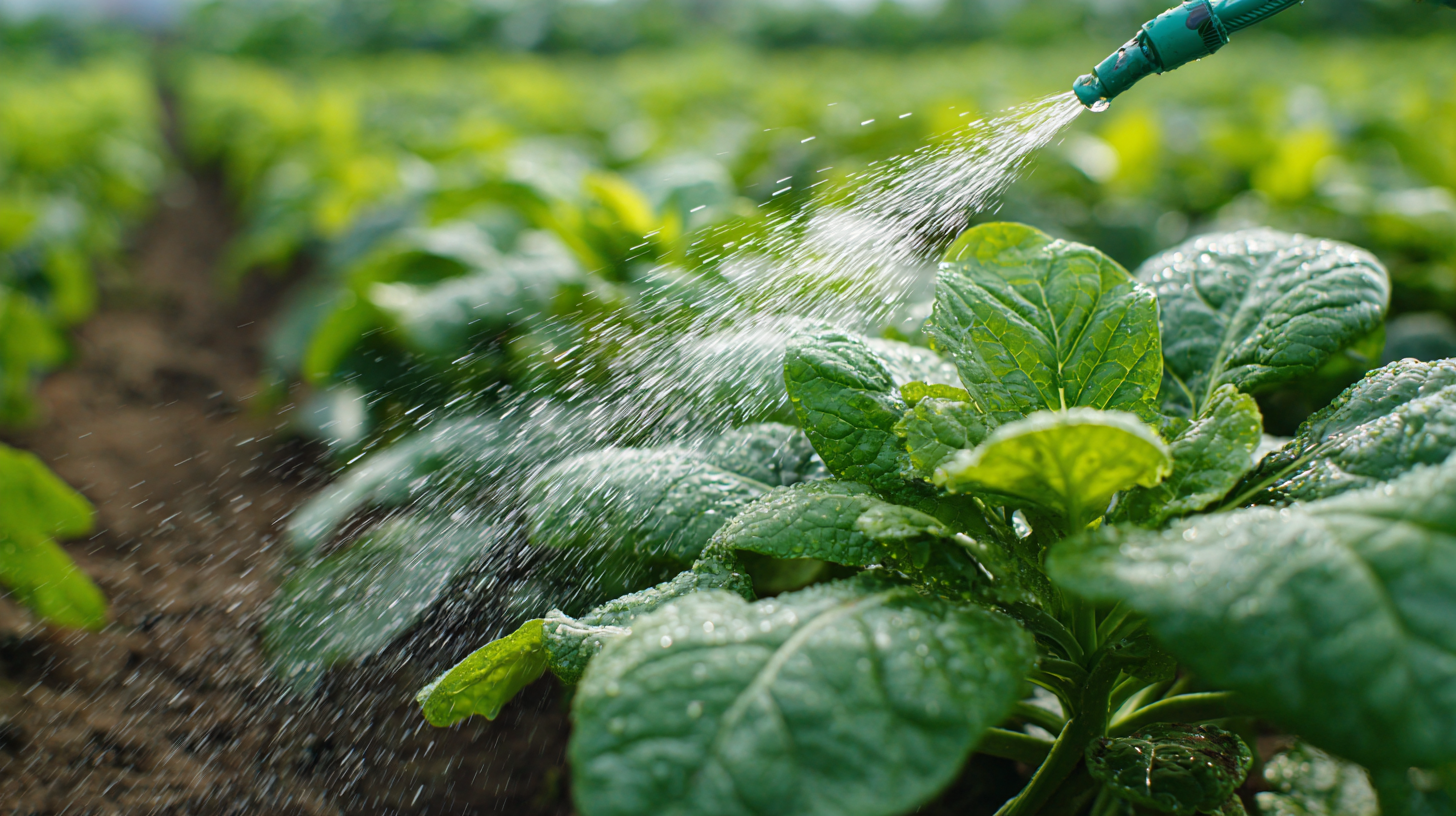
The liquid fertilizers market is poised for significant growth in 2025, with a focus on enhancing plant growth and agricultural productivity. These fertilizers offer a convenient and efficient way to deliver essential nutrients directly to plants, promoting robust development and higher yields. The anticipated increase in global demand will be driven by both home gardeners and commercial agriculture, looking to optimize their crop performance and sustainability.
Tips for choosing the right liquid fertilizer include assessing the specific nutrient needs of your plants, considering the timing of application, and ensuring compatibility with existing soil conditions. It's important to select fertilizers that match the growth stage of your plants to maximize their benefits. Additionally, regularly testing your soil can help you identify nutrient deficiencies and adjust your fertilization strategy accordingly.
As the organic fertilizer market expands alongside liquid fertilizers, gardeners are encouraged to explore eco-friendly options that enhance soil health while supporting plant growth. By choosing organic liquid fertilizers, you can promote a thriving garden environment and contribute to sustainable agricultural practices.
| Rank | Product Type | N-P-K Ratio | Primary Nutrients | Application Rate | Target Plants | Features |
|---|---|---|---|---|---|---|
| 1 | All-Purpose | 20-20-20 | N, P, K | 1-2 tsp per gallon | Vegetables, Flowers | Fast Acting, Versatile |
| 2 | Bloom Booster | 10-30-20 | Phosphorus, Potassium | 1 tsp per gallon | Flowering Plants | Enhances Flowering |
| 3 | Vegetable Growth | 15-30-15 | High Nitrogen | 2 tsp per gallon | Vegetables | Promotes Leaf Growth |
| 4 | Fruit Enhancer | 8-12-12 | Micronutrients | 1.5 tsp per gallon | Fruiting Plants | Maximizes Fruit Flavor |
| 5 | Root Development | 5-10-10 | Potassium, Calcium | 1 tsp per gallon | Newly Planted | Supports Root Growth |
| 6 | Organic Formula | 12-0-0 | Organic Nitrogen | 2 tsp per gallon | All Plants | Eco-Friendly, Slow Release |
| 7 | Hydroponic Blend | 15-5-30 | Comprehensive Nutrients | 3 tsp per gallon | Hydroponics | Formulated for Hydroponics |
| 8 | Citrus Fertilizer | 6-4-8 | Specialized Nutrients | 1.5 tsp per gallon | Citrus Trees | Enhances Fruit Production |
| 9 | Green Leafy | 20-10-10 | High Nitrogen | 1 tsp per gallon | Leafy Vegetables | Promotes Leaf Growth |
| 10 | Specialty Blend | 15-15-15 | Balanced Nutrients | 2 tsp per gallon | Diverse Plants | Balanced for All Uses |
As gardening and agriculture evolve, innovative nutrient solutions become increasingly essential for achieving optimal garden health. The global liquid fertilizer market was valued at approximately $20 billion in 2021 and is projected to grow at a CAGR of about 5.5% through 2026 (Source: MarketsandMarkets). This growth highlights the increasing reliance on advanced nutrient solutions to meet the demands of modern horticulture. Water-soluble liquid fertilizers, in particular, offer an efficient way to deliver essential nutrients directly to plants, promoting robust growth and higher yields.
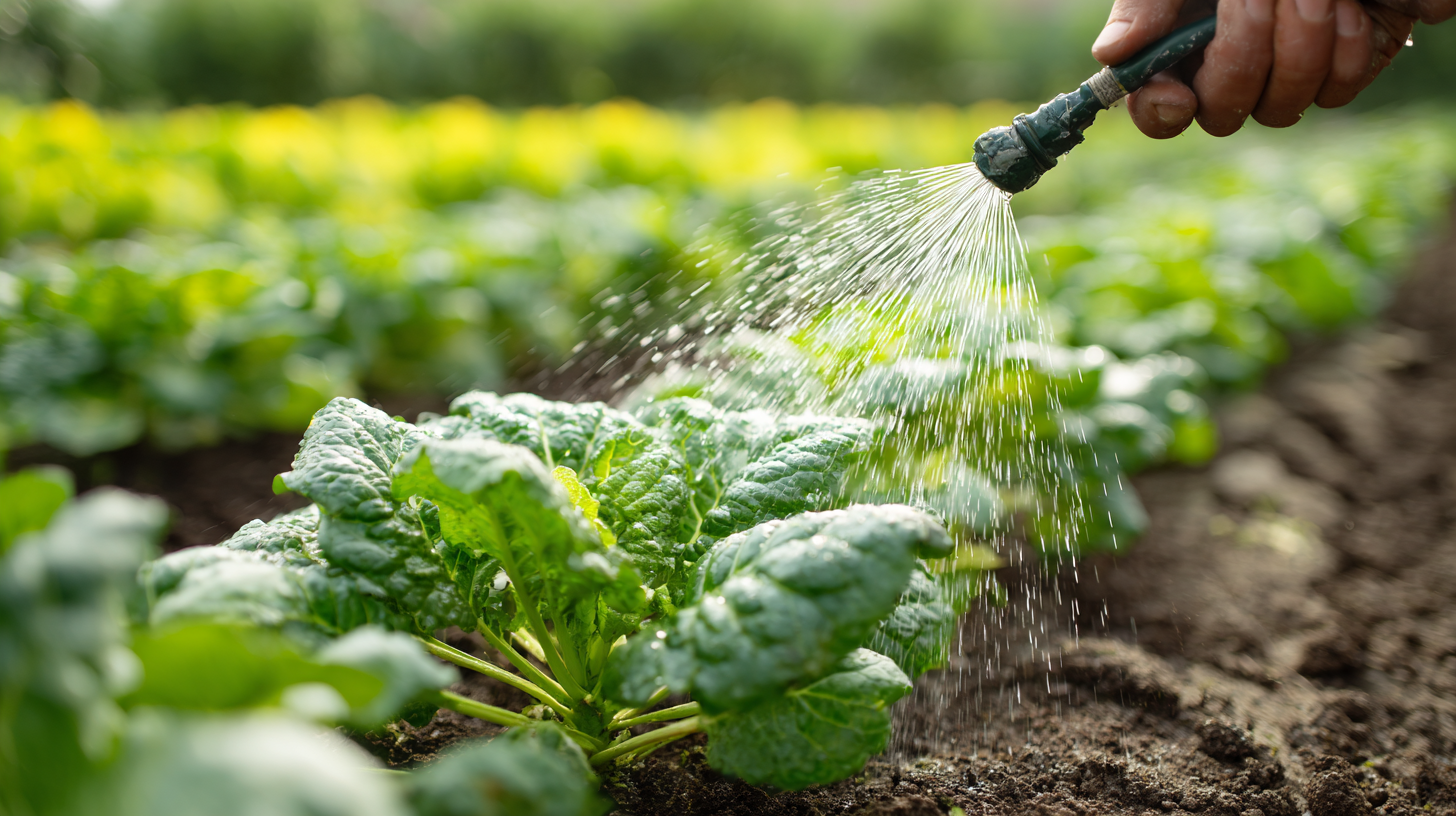
Recent studies indicate that water-soluble fertilizers significantly improve nutrient uptake, optimizing plant health and productivity. According to research published by the International Fertilizer Association, using water-soluble formulations can enhance crop productivity by up to 30% compared to conventional fertilization methods. This precision in nutrient delivery not only supports plant growth but also contributes to environmental sustainability by minimizing nutrient runoff and waste. Adopting these innovative fertilization practices is crucial for anyone aiming for a thriving garden or successful agricultural operation in 2025 and beyond.
Eco-friendly water-soluble fertilizers are becoming increasingly essential for farmers looking to enhance sustainability in their agricultural practices. These fertilizers dissolve in water, allowing for efficient nutrient uptake by plants while minimizing runoff and environmental impact. By opting for organic ingredients and natural sources, these eco-friendly options not only nourish crops but also contribute to a healthier soil ecosystem. Farmers can cultivate a thriving garden while aligning their practices with environmentally responsible choices.

When selecting water-soluble fertilizers, consider the nutrient requirements of your specific plants. Always perform a soil test to determine existing nutrient levels and adjust your fertilizer choice accordingly. This tailored approach ensures that plants receive the necessary nutrients without over-applying, which can lead to wastage.
Another tip is to apply fertilizers during cooler parts of the day. This practice minimizes evaporation and allows for better absorption by plants. Additionally, combining water-soluble fertilizers with organic compost can enhance overall soil health, providing a balanced diet for your plants while promoting biodiversity in the soil. Adopting these eco-friendly practices will not only lead to agricultural success but also support the well-being of our planet.
When selecting the best water-soluble liquid fertilizers for your garden or agricultural needs in 2025, several key features should be at the forefront of your decision-making process. One important aspect is the nutrient ratio; fertilizers that offer a balanced N-P-K (Nitrogen-Phosphorus-Potassium) ratio promote optimal plant growth. Additionally, consider the presence of micronutrients, which can enhance plant resilience and productivity.
Tips: Always check the specific needs of your plants before choosing a fertilizer, as different species may require different nutrient compositions. For instance, leafy greens may thrive on higher nitrogen levels, while flowering plants benefit from increased phosphorus.
Another significant factor is the solubility and absorption rate of the fertilizer. Fast-acting formulations can provide immediate benefits, whereas slow-release options are more suited for long-term nutrient provision. Furthermore, organic versus synthetic fertilizers can affect soil health and sustainability, making it essential to evaluate the long-term impact of your choice.
Tips: When applying liquid fertilizers, follow package instructions carefully to avoid over-fertilization, which can harm plants and leach into waterways. It's also wise to conduct soil tests periodically to ensure that nutrient levels remain balanced and effective.
This chart displays the nutrient concentration of the top 10 water soluble liquid fertilizers in 2025, focusing on Nitrogen (N), Phosphorus (P), and Potassium (K) content (in percentage). These nutrients are essential for plant growth and agricultural success.
Liquid fertilizers play a pivotal role in maximizing crop yields, particularly in contemporary agricultural practices. With advancements in precision agriculture, farmers are increasingly turning to water-soluble liquid fertilizers to enhance nutrient efficiency and sustainability. These fertilizers, including formulations like urea, are designed for optimal absorption, ensuring that crops receive the necessary nutrients directly and effectively. This method not only improves yield but also promotes environmental stewardship by minimizing fertilizer waste and reducing chemical runoff.
The integration of cutting-edge technologies, such as neural networks and hybrid control systems, is transforming how farmers manage their fertilizer applications. Such innovations allow for a more tailored approach, providing insights into soil health and precise nutrient requirements. As illustrated by the significant adoption of specific liquid fertilizers in various regions, including North America and Asia Pacific, the demand for effective and eco-friendly fertilization solutions continues to rise. This evolution highlights the critical need for farmers to adapt and innovate in response to growing food demands and sustainability challenges in agriculture.

